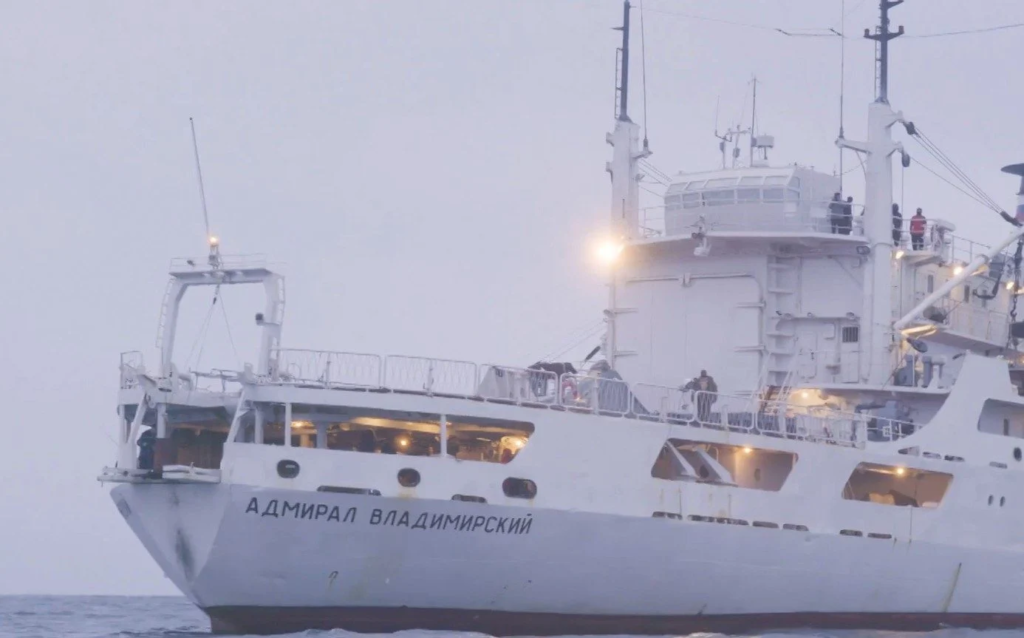
For a long time it was only speculation. Now we know for certain: Russian spy ships are mapping wind farms and key cables off the British coast. There can be only one reason for this – to learn how to sabotage UK and European critical infrastructure in the event of a full-scale war with the West.
The sobering truth is that our potential adversaries, Russia in the West and China in the East, are gearing up for wider conflict. That does not mean that conflict will happen –preparation makes it less likely – but we must urgently recognise the extent of the threat to the current order. Our world is becoming markedly more dangerous. And Britain is not ready.
Our collective response over too much of the past 15 years was one of denial, oiled and encouraged by Russian money and influence in the US, UK and EU. War in Ukraine opened our eyes – just this week Cabinet Office Secretary Oliver Dowden gave an “unprecedented” warning of cyber threats to our national infrastructure; and Defence Secretary Ben Wallace has been consistently robust – but there is much more we can do.
Some of our closest allies, such as Poland, are re-arming on land at an unprecedented rate. Were the worst to happen, they will be ready to defend European soil. But the Nato alliance remains dangerously exposed at sea.
Russia is probing for European vulnerabilities. Apart from food, the daily critical requirements of modern society are energy and communications.
The underwater arteries of modern civilisation are surprisingly few. For example, just three pipelines deliver 43 per cent of our baseline gas supply. Five interconnectors deliver electricity to and from the UK and Europe (and one more between Britain and Ireland).
There are more communications cables, about 70 in all, but a relatively small number of deep-sea sabotage operations could bring our world to a halt without a shot being fired. We were assured that wind farms would bolster our energy security, but few considered their military exposure.
For two decades, Putin has laid the groundwork for unconventional warfare. Current Russian military thinking sees conflict as combining military and non-military tools of state power – the “unification of everything” – into a seamless whole to serve the Kremlin’s aims.
It is a form of total war, using everything from culture to cyber to conventional conflict. It reflects the belief that, according to the head of Russia’s Armed Forces, the “very rules of war” have changed.
It has been clear for years that both Russian official and illicit groups operate under the Kremlin’s control.
Russia has long used organised crime to do its dirty work, and with the global growth of the Wagner mercenary group, the “unofficial arms” of the Russian state will only increase.
Behind them will be Russia’s overseas spy agency, the SVR, its internal agency, the FSB, or the bloodthirsty but sloppy GRU, responsible for the Skripal poisoning.
My fear is that Putin is gauging options to attack the West, should he wish to escalate, without triggering a Nato military response.
How would the UK or Nato respond to shadowy groups conducting cyber attacks across the UK or Europe that result in physical damage or destruction of fuel storage depots? Or a series of unexplained glitches or failures on underwater cables? Would a military response be feasible, as Admiral Tony Radakin argued last year? We still don’t know who sabotaged the Nord Steam 2 pipeline. Could we really risk war on a suspicion? Putin knows this.
As a result of the Telegraph story that broke the news of the underwater mapping, I have put down Written Parliamentary Questions to ask about capabilities for underwater cable protection, when our undersea cable protection platform will be fully operational, and if and when a second will enter service.
The truth is that maritime defence is an area where Britain can naturally lead, working especially with our Scandinavian, North Sea and Baltic allies in the ten-nation Joint Expeditionary Force.
All these seafaring countries have a vested interest in preventing Russian ocean sabotage. But Britain’s history is unique and our naval experience unrivalled, especially among our northern European allies.
The need is critical. This century will witness a struggle between two versions of humanity: open societies like our own versus closed, authoritarian societies using all forms of state power to oppress their own people and threaten others. It is a struggle that we have not wanted, but one that we cannot, and must not, lose.
We have failed to see the trend, in Russia but also in China, because for too long our leaders naively assumed the rulers of those countries shared our own outlook and assumptions. They do not. As we have seen with Putin, war is not only think able but necessary. Using his spy ships in the North and Baltic seas, he is threatening to expand that conflict still further. We cannot afford to let him do so.
Bob Seely is MP for the Isle of Wight and sits on the Foreign Affairs Committee. He has a PhD in Russian military strategy






